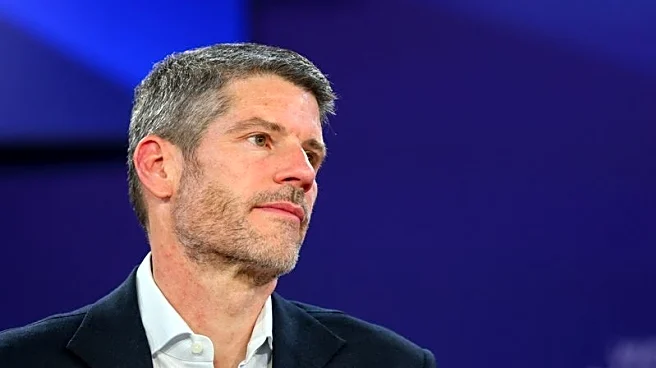What's Happening?
Cambodia's Prime Minister reported the death of a villager due to renewed hostilities along the border with Thailand. This incident follows a Thai soldier's injury from a land mine, leading Thailand to suspend the ceasefire terms. The ceasefire, initially
brokered by President Trump, aimed to end a five-day conflict over territorial disputes. Thai Prime Minister Anutin Charnvirakul stated that Thailand had tried to honor the ceasefire, but accused Cambodia of delaying progress. Cambodia's Prime Minister Hun Manet claimed Thai troops fired on civilians, while Thailand accused Cambodian soldiers of initiating the conflict.
Why It's Important?
The breakdown of the ceasefire raises concerns about regional stability and the effectiveness of international diplomatic efforts. The conflict impacts local communities and could strain relations between Cambodia and Thailand, affecting trade and cooperation. The involvement of President Trump in brokering the ceasefire highlights the U.S.'s role in Southeast Asian geopolitics. The situation underscores the challenges in resolving long-standing territorial disputes and the potential for escalation if diplomatic solutions are not found.
What's Next?
Both countries may face international pressure to return to negotiations and prevent further violence. The U.S. and ASEAN could play roles in facilitating dialogue. The ongoing conflict may lead to increased military presence and border security measures, affecting civilian life and regional trade. The historical territorial disputes remain unresolved, suggesting that long-term peace requires addressing these underlying issues.
Beyond the Headlines
The conflict highlights the complexities of historical territorial claims and the role of colonial-era maps in modern disputes. The situation may influence regional alliances and the perception of U.S. involvement in Southeast Asia. The humanitarian impact on border communities could lead to calls for international aid and intervention.















